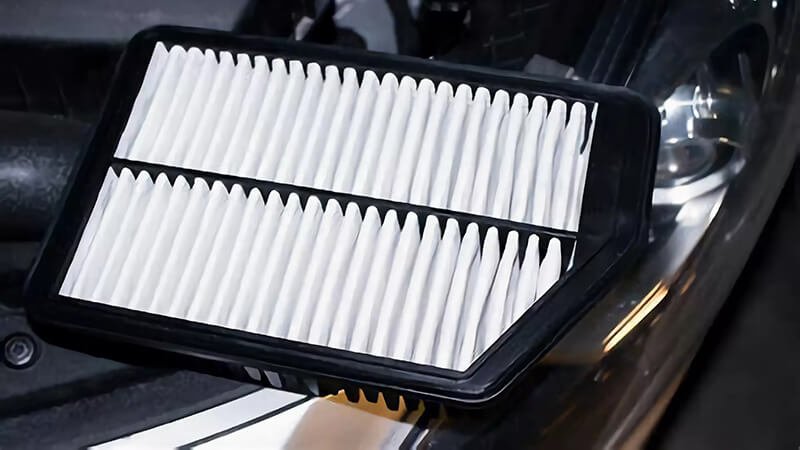A car's cabin air filter is often overlooked, but it plays a crucial role in maintaining the comfort and health of the driver and passengers. Neglecting this simple component can lead to a range of issues, from poor air quality to reduced air conditioning performance.
Cabin air filters are important because they trap dust, pollen, and other contaminants from entering the car’s cabin. Without it, your vehicle can have poor air quality, leading to discomfort and health concerns for everyone in the car.
In this article, I’ll explain why the cabin air filter is an essential part of your car, the risks of not having one, and how it can impact both your health and vehicle performance. Let’s dive into why this small but important filter deserves more attention.
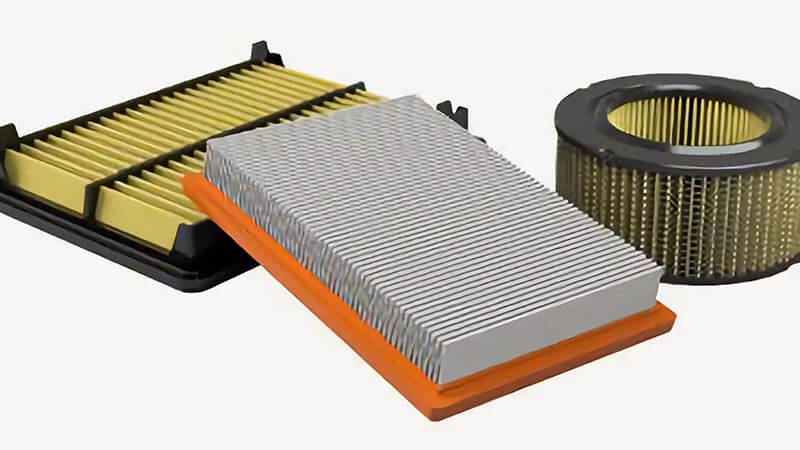
Why is the cabin filter important in a car?
The cabin air filter’s primary role is to clean the air that enters the car through the HVAC system. Without it, pollutants can make their way into your cabin, impacting both your health and driving comfort.
Cabin filters are essential because they help prevent dust, pollen, and other allergens from entering your car. They also protect the air conditioning system from debris, ensuring smoother airflow and better performance.
The cabin air filter is not just a small component of your vehicle; it is a critical part of ensuring the comfort and health of everyone inside the car. When the air conditioning system operates, it draws in air from outside. The cabin air filter ensures that this air is clean and free from harmful pollutants such as dust, pollen, and even harmful chemicals found in exhaust fumes.
This is especially important for individuals who suffer from allergies or respiratory issues, as poor air quality can aggravate conditions like asthma. The filter helps reduce the presence of allergens in the cabin, allowing passengers to breathe easier during their travels.
Beyond the health benefits, the cabin air filter plays a vital role in keeping the HVAC system operating efficiently. Without it, dirt and debris can build up in the system, which can cause clogging and prevent the air conditioning from working properly. Over time, this can lead to a decrease in cooling performance, ultimately forcing the system to work harder and consume more energy.
The importance of regular filter replacement cannot be overstated. A clogged or dirty cabin filter not only leads to poor air quality but can also shorten the lifespan of the HVAC system, leading to costly repairs or replacements down the line. By replacing the cabin air filter at the recommended intervals, you ensure that both the air inside your car remains clean and your HVAC system operates smoothly.
| Benefit of Cabin Air Filter | Explanation |
|---|---|
| Improves Air Quality | Traps pollutants, allergens, and chemicals, creating a healthier cabin environment |
| Protects HVAC System | Prevents debris from clogging the HVAC components, ensuring smooth airflow |
| Reduces Allergy Symptoms | Reduces allergens like pollen and dust, improving comfort for allergy sufferers |
| Enhances Overall Comfort | Improves air circulation and prevents unpleasant odors from entering the cabin |
As we can see, the cabin air filter offers multiple advantages that go far beyond just filtering the air. It enhances the vehicle's overall comfort and performance, making it an essential component for any car.
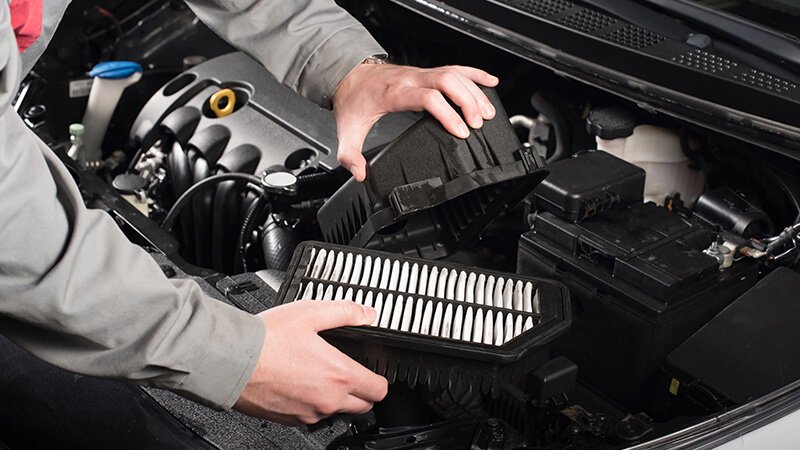
What happens if you don’t have a cabin air filter in your car?
Skipping out on having a cabin air filter may seem like a way to save money, but it can lead to several significant issues that impact both your vehicle and your health. Let’s take a closer look at what can happen.
Without a cabin air filter, your car’s interior air quality suffers. Pollutants can enter freely, and the HVAC system may become clogged, leading to reduced performance and potential damage.
The absence of a cabin air filter allows harmful particles, including dust, pollen, and other airborne allergens, to flow freely into your car’s cabin. This results in significantly poorer air quality inside your vehicle. For those with respiratory problems, this can be especially troubling, leading to shortness of breath, allergies, or other health complications. Even without preexisting conditions, the pollutants can lead to general discomfort, such as irritation in the eyes, nose, or throat.
Another significant consequence of not having a cabin air filter is the clogging of your HVAC system. The system is designed to pull in outside air and condition it, but without a filter, debris and dirt can clog the system’s components. Over time, this can result in poor air circulation, reduced cooling efficiency, and even the failure of the HVAC system entirely.
As the HVAC system struggles to work efficiently, the lack of filtration can also cause unpleasant odors to enter the cabin. Foul smells from dirt, mold, and mildew can quickly develop and linger, making your driving experience unpleasant. The absence of a cabin air filter also increases the chances of the HVAC system accumulating moisture, creating a breeding ground for mold, which can then spread to other areas of the vehicle.
| Consequence of No Cabin Air Filter | Impact |
|---|---|
| Poor Air Quality | Increases exposure to allergens, dust, and pollution |
| HVAC System Clogging | Reduces airflow and puts more strain on the air conditioning system |
| Unpleasant Odors | Mold, mildew, and contaminants can cause bad smells |
| Health Risks | Aggravates respiratory problems and allergies |
Ultimately, driving without a cabin air filter compromises your vehicle’s efficiency, cleanliness, and even the health of the people inside. It may seem like an easy way to cut costs, but the consequences far outweigh the savings.
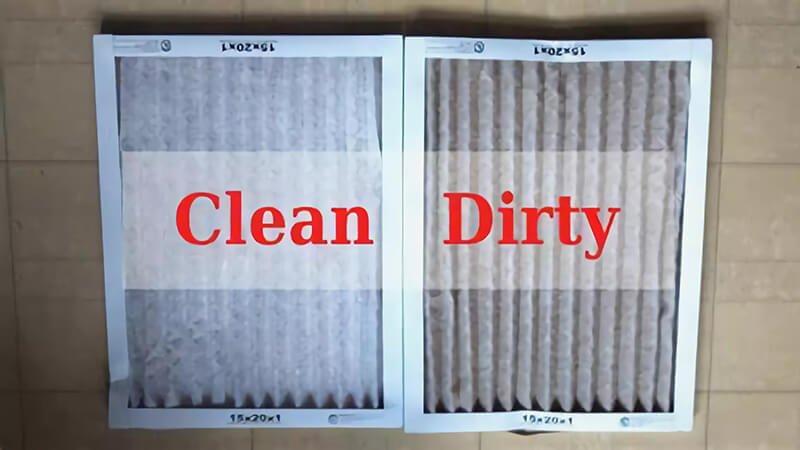
Can I run my AC without a cabin air filter?
Many drivers may wonder whether it's okay to run the air conditioning system without a cabin air filter. While it may seem harmless, doing so can lead to several undesirable outcomes that affect your comfort and the car’s performance.
Running your AC without a cabin air filter is not recommended. It can allow debris to enter the HVAC system, affecting its performance and leading to unpleasant odors inside the car.
While the air conditioning system can technically operate without a cabin air filter, it is not advisable. The main function of the cabin air filter is to trap pollutants before they enter the HVAC system. Without the filter, dirt, dust, and other debris can easily get sucked into the system. This leads to the accumulation of debris in critical components, which could restrict airflow and affect the system’s ability to cool or heat the cabin efficiently.
The lack of a filter also increases the likelihood of mold and mildew growing inside the system. This is because the HVAC system is constantly exposed to moisture, especially in humid conditions. Without the cabin air filter to block contaminants, the moisture can accumulate and foster the growth of mold, which, over time, will release unpleasant odors that will circulate through the vehicle.
Furthermore, the air conditioning system will have to work harder to compensate for the lack of filtration, resulting in increased energy consumption. This not only puts more strain on the system but can also cause unnecessary wear and tear. Ultimately, running your AC without the cabin air filter can lead to increased maintenance costs and a much less pleasant driving experience.
| Effect of Running AC Without Filter | Consequence |
|---|---|
| Reduced Airflow | Less efficient cooling and heating system |
| Increased Moisture and Mold Growth | Bad smells and health risks from mold spores |
| Higher Energy Consumption | Strain on the HVAC system, increased repair costs |
| Poor Air Quality | Contaminants circulating inside the vehicle |
As we can see, operating your AC without a cabin air filter is not a sustainable option. It causes unnecessary damage and reduces the overall quality of the vehicle’s air.
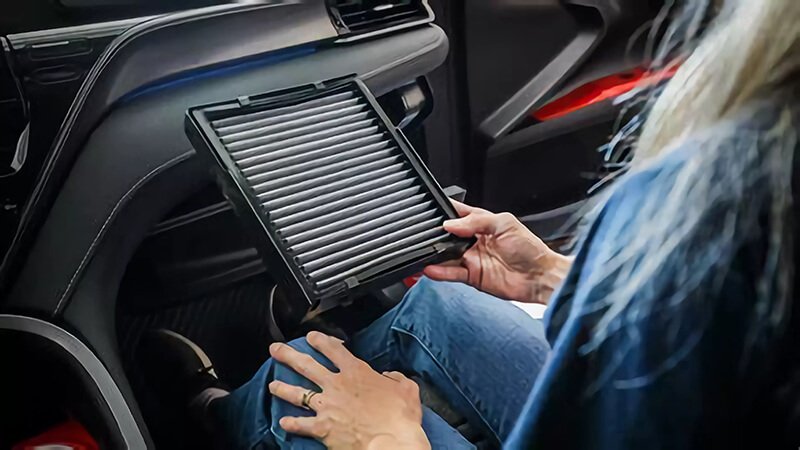
Can cabin air filter affect car performance?
While the cabin air filter primarily deals with air quality, its condition can indirectly affect the overall performance of your vehicle. Let’s explore how the filter can have a ripple effect on your car’s functionality.
A clogged or dirty cabin air filter can reduce airflow, which affects the air conditioning system and the overall comfort of the vehicle. In some cases, it can even impact engine performance by limiting the intake of fresh air.
Though the cabin air filter is primarily designed to filter air for the cabin, its condition can have indirect effects on your car’s overall performance. A clogged or dirty cabin filter can severely restrict airflow into the HVAC system. This results in reduced efficiency of your air conditioning or heating system, causing it to work harder to regulate the cabin temperature. In the long run, this added strain on the system can lead to increased energy consumption and higher maintenance costs.
Additionally, restricted airflow from a clogged cabin air filter can cause poor cabin ventilation. Without proper ventilation, the car can become stuffy, leading to discomfort for both the driver and passengers. This is particularly problematic during long drives, where comfort is crucial.
In some cases, a clogged cabin air filter can even affect the vehicle’s engine performance. The HVAC system draws in outside air, and if the filter is blocked, it can disrupt the airflow needed for optimal engine combustion. While this effect is not as significant as other factors affecting engine performance, it can still contribute to inefficient fuel consumption and even lead to engine wear over time.
| Effect of Clogged Cabin Air Filter | Resulting Impact |
|---|---|
| Poor HVAC Performance | Reduced airflow and inefficient heating/cooling |
| Increased Fuel Consumption | More energy used by the HVAC system |
| Reduced Comfort | Poor cabin ventilation, leading to driver fatigue |
| Engine Inefficiency | Potential disruption in combustion efficiency |
Maintaining your cabin air filter ensures both your comfort and the optimal functioning of other vehicle systems. It may seem like a small part of the vehicle, but its role in performance and overall comfort is undeniably important.
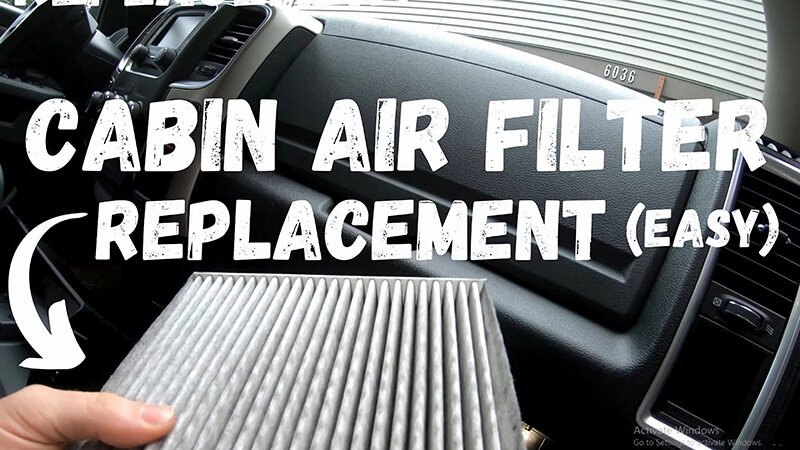
Conclusion
In conclusion, the cabin air filter is more than just a small component in your vehicle. It plays a significant role in maintaining air quality, protecting the HVAC system, and ensuring that the air conditioning system operates efficiently. Regular maintenance of this filter is vital to keeping your car’s performance at its best, improving your comfort, and avoiding costly repairs. Don't underestimate the importance of this simple yet essential part of your vehicle.

